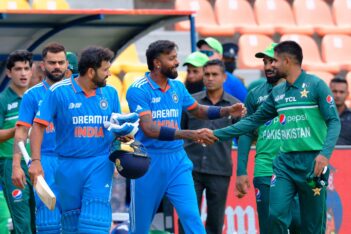The 10th edition of the much-anticipated Futsal World Cup started in Uzbekistan on 14 September. This marks a significant return for the tournament, as the last edition was held in Lithuania in 2021, following delays due to the COVID-19 pandemic. Portugal claimed the title in the 2021 event, and now the competition is back to its regular four-year cycle.
FIFA has been organising the five-a-side Futsal World Cup since 1989. In this tournament, 24 teams compete for the highest honour in futsal.
Portugal’s dominance in recent times
Portugal became the fourth nation to win the prestigious Futsal World Cup, making its mark in the tournament’s history. Since the first World Cup in 1989, Brazil has been the dominant force, claiming five championships with victories in 1989, 1992, 1996, 2008, and 2012. Brazil remains the most successful team in the history of the tournament.
Besides Brazil and Portugal, Spain has also tasted success, winning the World Cup twice, in 2000 and 2004. Argentina triumphed in 2016, further diversifying the pool of world champions in futsal.
FIFA Futsal World Cup debutant nations in 2024
Four nations have made their debut in the FIFA Futsal World Cup this year, including Afghanistan, France, New Zealand, and Tajikistan, marking their first appearance in the tournament.
Venues for FIFA Futsal World Cup 2024
The Futsal World Cup 2024 is being hosted across three exciting venues in Uzbekistan: the Andijan Universal Sports Complex, with a capacity of 2,971; the Bukhara Universal Sports Complex, slightly larger with a capacity of 3,105; and the highlight of the tournament, the Humo Arena in Tashkent, boasting a capacity of 9,546, making it the largest venue for the event.
Semifinals and Final matches to go
After the group stage, a total of 16 teams advanced to the round of 16, after which 8 teams progressed to the quarterfinals. Now, the semifinalists have been decided. The tournament’s most successful team, Brazil, is set to play the semis against Ukraine, while Argentina will face the debutants, France, in the second semifinal. The finals will take place on 6th October.
Brazil’s Marcel is the top scorer
There have been 341 goals scored in 48 matches, averaging 7.1 goals per match up to the quarterfinals. Leading the pack is Brazil’s Marcel, who has scored an impressive 10 goals. Close behind is Argentina’s Alan Brandi with 7 goals. Iran’s Salar Aghapour follows with 6 goals. Several players are tied with 5 goals each, including Argentina’s Kevin Arrieta and Matías Rosa, Brazil’s Pito, Kazakhstan’s Arnold Knaub, and Venezuela’s Kevin Briceño.
Editor's Pick
 Cricket
Date Confirmed! ICC to hold meeting with BCCI, PCB for Champions Trophy on Nov 26
Cricket
Date Confirmed! ICC to hold meeting with BCCI, PCB for Champions Trophy on Nov 26


















































